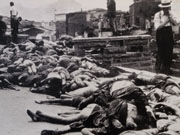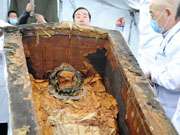BEIJING, March 15 -- Following is the full text of report on the implementation of central and local budgets in 2013 and on draft central and local budgets for 2014, which was submitted for review on March 5, 2014 at the Second Session of the 12th National People's Congress and was adopted on March 13:
REPORT ON THE IMPLEMENTATION OF THE CENTRAL AND LOCAL BUDGETS IN 2013 AND ON THE DRAFT CENTRAL AND LOCAL BUDGETS FOR 2014
Second Session of the Twelfth National People's Congress
March 5, 2014
Ministry of Finance
Fellow Deputies,
The Ministry of Finance has been entrusted by the State Council to submit this report on the implementation of the central and local budgets in 2013 and on the draft central and local budgets for 2014 to the Second Session of the Twelfth National People's Congress (NPC) for your deliberation and for comments from the members of the National Committee of the Chinese People's Political Consultative Conference (CPPCC).
I. Implementation of the Central and Local Budgets in 2013
In 2013, all regions and government departments united as one, worked hard, and made progress in economic and social development while maintaining stability under the firm leadership of the Central Committee of the Communist Party of China (CPC) and the State Council in spite of the extremely complicated situations in China and abroad. On this basis, fiscal work, reforms and development proceeded in good order and government budgets were satisfactorily implemented on the whole.
1. Strengthening and improving macro-control through fiscal policy
To keep the economy running steadily, the State Council defined a clear range for its functioning, stressing that as long as the rate of growth did not fall below the baseline and employment remained stable, no short-term stimulus policies would be used to intervene in the working of the economy, and efforts would be made instead to keep market expectations stable, carry out appropriate anticipatory adjustments and fine-tuning while at the same time streamlining administration, delegating more power to lower-level governments, promoting reforms, stimulating the market's vitality, and reaping the benefits of reform.
First, we did not increase the deficit, keeping it at 2.1% of GDP.
Second, we implemented preferential fiscal and tax policies to promote the development of businesses. We suspended value-added tax (VAT) and business tax on some small and micro businesses, benefiting more than six million businesses. We abolished or exempted 34 central government administrative fees and 314 local government administrative fees. We widened the scope of tax deductions for businesses' R&D expenses, such as the funds for buying old-age insurance, medical insurance, unemployment insurance, workers' compensation, and maternity insurance and contributing to the housing provident fund for their R&D personnel.
Third, we reviewed the government's financial resources. We obtained a clear picture of the funds the government had in hand. We carried out a nationwide inspection of the loans granted by local governments and their special accounts. We set the targets for reviewing and cutting carryover and surplus funds, temporary deposits, and temporary payments of the government. We formulated measures for coordinating the use of carryover and surplus funds and uncovered idle funds so that they can be used where they are urgently needed.
Fourth, we promoted the optimization of the investment structure. We began to phase out central government investment in capital construction in competitive areas, and then redirected it to other areas and adjusted its structure. We increased investment in major infrastructure projects that extend beyond the borders of provinces, autonomous regions and municipalities directly under the central government. We carried out reform to make investment in and financing for the development of urban infrastructure more market-orientated.
Fifth, we inspected the implementation of policies and measures. We actively carried out inspections and follow-up investigations of the implementation of major fiscal and tax policies, strengthened oversight of the implementation of policies for improving the people's wellbeing and the allocation of funds for this purpose, and promoted the effective execution of the important policy decisions of the CPC Central Committee and the State Council.
 |

 Top 10 safest airlines in the world
Top 10 safest airlines in the world Bridge Worship Festival in Taijiang, SW China
Bridge Worship Festival in Taijiang, SW China  Chinese artists from Flight MH370 and their art
Chinese artists from Flight MH370 and their art Selected photos of 'two sessions'
Selected photos of 'two sessions' Most unusual taxis around the world
Most unusual taxis around the world Sweet photos of mom striking Yoga poses with daughter
Sweet photos of mom striking Yoga poses with daughter Top 10 pure beauties in showbiz
Top 10 pure beauties in showbiz Top 20 happiest cities in China
Top 20 happiest cities in China Beautiful fisherwomen in SE China
Beautiful fisherwomen in SE China History in photos: Anti-Japanese War (1937-1945)
History in photos: Anti-Japanese War (1937-1945) Female SWAT team in Chongqing
Female SWAT team in Chongqing 1,500-year-old coffin excavated from grassland in N China
1,500-year-old coffin excavated from grassland in N China Ballerinas anywhere but onstage
Ballerinas anywhere but onstage
Day|Week|Month